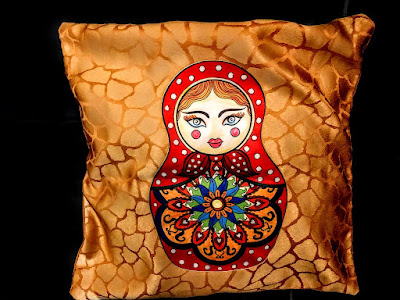‘The Kings still come to Bethlehem / With broken hearts and souls sore-vexed’ … the kings in a Ukrainian children’s nativity presentation in Budapest last week (Photograph: Patrick Comerford, 2023)
Patrick Comerford
Christmas is not a season of 12 days, despite the popular Christmas song. Christmas is a 40-day season that lasts from Christmas Day (25 December) to Candlemas or the Feast of the Presentation (2 February).
Throughout the 40 days of this Christmas Season, I am reflecting in these ways:
1, Reflecting on a seasonal or appropriate poem;
2, a prayer from the USPG prayer diary, ‘Pray with the World Church.’
We are back in Stony Stratford following a busy a week visiting Hungary and Finland with the Anglican mission agency USPG (United Society Partners in the Gospel) and the Diocese in Europe, looking at how the church and church agencies there are working with refugees from Ukraine.
These Epiphany-tide journeys across Europe are over, but there is a lot of work to do on preparing reports and writing about these visits.
My choice of a seasonal poem this morning is ‘Epiphany,’ a poem written in 1916 by Winifred Mary Letts (1882-1972), an English-born writer who spent most of her life in Ireland. She was known for her novels, plays and poetry.
Winifred Mary Letts was born in Broughton, Salford, now part of Greater Manchester. She was her parents’ third child. Her father, the Revd Ernest Letts (1854-1904) was an artist and a Church of England priest. He married Isabel Mary Ferrier in Belfast in 1874. He was a minor canon and precentor of Manchester Cathedral, and the Rector of All Saints’, Newtown Heath, Manchester (1885-1904), until his untimely death.
Winifred many spent many childhood holidays at her mother’s home in Knockmaroon, near the Phoenix Park in Dublin. After the Revd Ernest Letts died in 1904, his widow returned to Ireland with their children and lived at Dal Riada in Blackrock, Co Dublin.
Winifred Mary Letts was educated in Bromley, Kent, and then at Alexandra College, Dublin. She began her career as a playwright, writing two one-act plays for the Abbey Theatre: The Eyes of the Blind (1906) and The Challenge (1909). She then started writing novels and children’s books.
Letts’s story ‘The Company of Saints and of Angels’ was published by The Irish Review in 1912, when the editor was Thomas MacDonagh, later one of the leaders of the Easter Rising in Dublin in 1916. Her first poetry collection, Songs from Leinster, was published in 1913.
Six of her poems were set to music by Charles Villiers Stanford in A Sheaf of Songs from Leinster (1914); of these, the most famous is ‘A Soft Day’.
During World War I, while she was working as a nurse at army camps in Manchester in 1916, she published Hallowe’en and Other Poems of the War. Her poem ‘The Deserter’ (1916), describes the feelings and fate of a man terrified by the war, is often used in collections of World War I poetry.
Her collection was republished the following year as The Spires of Oxford, and other Poems (1917). A ‘Publisher’s Note’ in the 1917 edition explained: ‘The verdict of the public, as shown by continual requests to republish, is that The Spires of Oxford is the most important poem in the volume.’
She married the widowed William Henry Foster Verschoyle, of Kilberry, Co Kildare, in 1926, and they lived in Fitzwilliam Square, Dublin, and in Co Kildare. She continued to write novels and children’s fiction. Knockmaroon, a reminiscence of her childhood in her grandparents’ house in Dublin, was published in 1933 and is considered her finest book.
After William Verschoyle died in 1943, Winifred lived for a time with her sisters in Faversham, Kent. She returned to Ireland in 1950 and bought Beech Cottage in Killiney, Co Dublin. She lived there until moving to Tivoli Nursing Home in Dún Laoghaire in the late 1960s. She died in 1972 and is buried in Rathcoole, Co Dublin.
Epiphany (1916), by Winifred Mary Letts:
The Kings still come to Bethlehem
Though nineteen centuries have fled;
The Kings still come to Bethlehem
To worship at a Baby’s bed.
And still a star shines in the East,
For sage and soldier, king and priest.
They come not as they came of old
On lordly camels richly dight;
They come not bearing myrrh and gold
And jewels for a king’s delight.
All battle-stained and grim are they
Who seek the Prince of Peace to-day.
They bring not pearls nor frankincense
To offer Him for His content.
Weary and worn with long suspense
With kingdoms ravished, fortunes spent,
They have no gifts to bring but these—
Men’s blood and women’s agonies.
What toys have they to please a child?
Cannon and gun and bayonet.
What gold? Their honour undefiled.
What myrrh? Sad hearts and long regret.
For they have found through bitter loss
That Kings are throned upon the cross.
The Kings still come to Bethlehem
With broken hearts and souls sore-vexed.
And still the star is guiding them
Through weary nights and days perplexed.
God greet you, Kings, that you may be
New-crowned at His Epiphany.
‘Sad hearts and long regret’ (Winfred M Letts) … a cushion in ‘Ukrainian Space’ in Budapest last week (Photograph: Patrick Comerford, 2023)
USPG Prayer Diary:
The theme in the USPG Prayer Diary this week is an ‘Epiphany Reflection,’ introduced on Sunday morning by the Revd Michael Sei from the Episcopal Church of Liberia.
The USPG Prayer Diary invites us to pray today in these words:
Let us pray for victims of violence and drug abuse. May they be offered help and support, and may they find healing and peace.
Yesterday’s reflection
Continued tomorrow
Ukrainian icons at the Ukrainian Greek Catholic church in Budapest last Sunday (Photograph: Patrick Comerford, 2023)



No comments:
Post a Comment